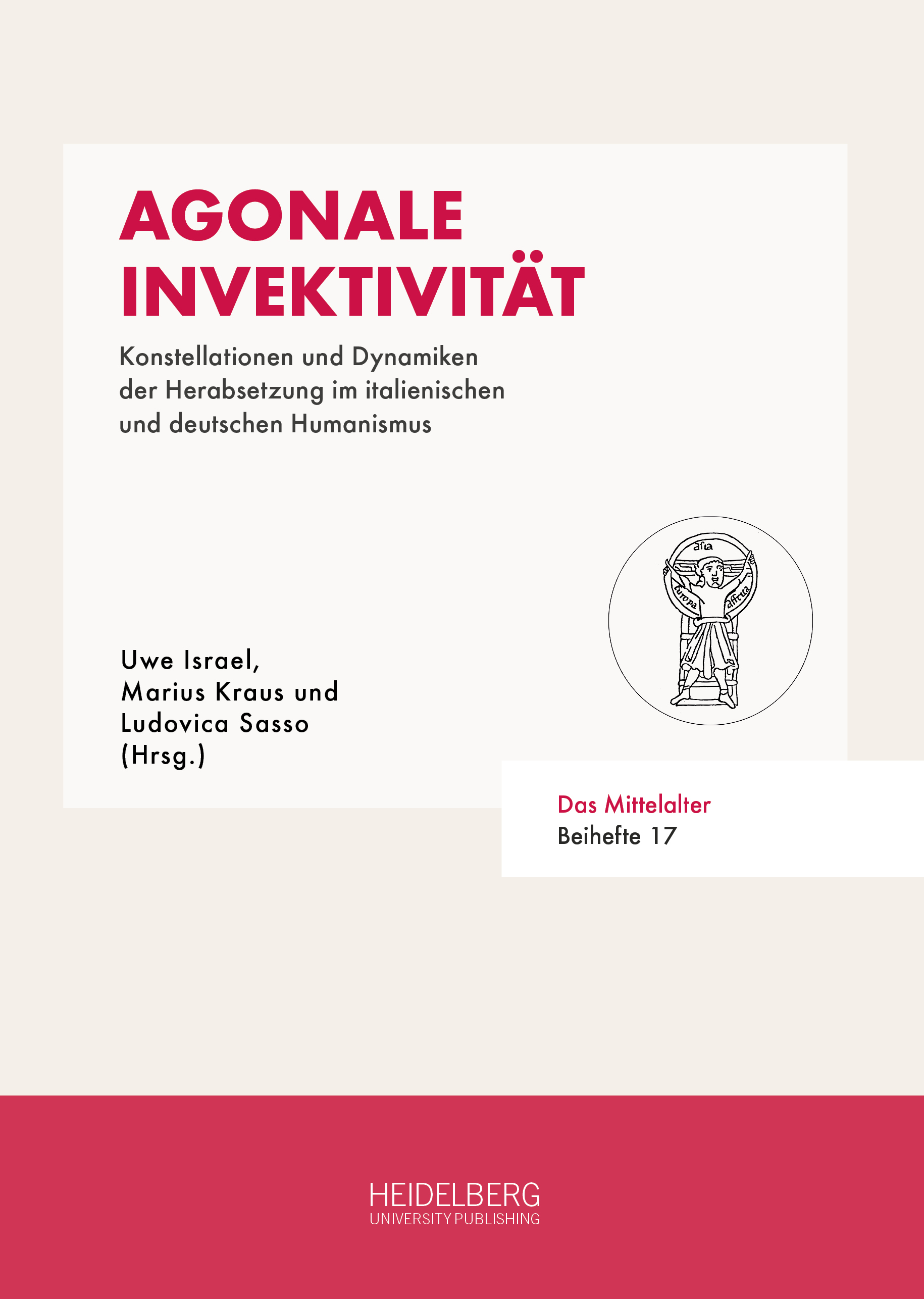Kipf, Johannes Klaus
Stadtgeschichte(n): Stadt und Kultur in Mittelalter und Früher Neuzeit
The title 'Medieval urban history/stories' evokes the dual meaning of the word as an event and as a narrative. On the one hand, it is about the event itself, and on the other, about what is reported and narrated about this event, i.e. urban historiography and the literature produced in the city. This anthology brings together contributions that examine the representation of the city in literature, art and historiography as well as a specifically urban culture in the Middle Ages and early modern period. To this end, sources are selected from the extensive corpus in which topography and institutions, buildings and inhabitants are explicitly addressed and become the subject of narration, praise and historical representation. The aim is to combine older approaches to social history with more recent ones, such as imagological approaches.
Agonale Invektivität: Konstellationen und Dynamiken der Herabsetzung im italienischen und deutschen Humanismus
What does humanism mean, who is a humanist? Contemporaries clarified this not least through diatribes. Intellectuals who, since the middle of the fourteenth century, have regarded rhetoric as the most noble method of promoting virtue, searching for truth and knowledge of God, saw mutual personal degradation as the means of asserting their positions.





